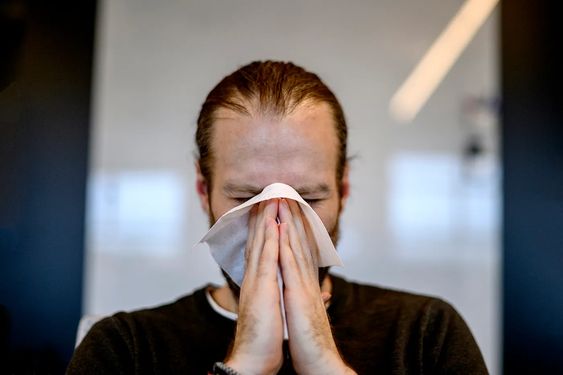
As the seasons change, you may find yourself sneezing, with a runny or stuffy nose, and itchy, watery eyes. These are typical symptoms of seasonal allergies, a condition that affects millions of people worldwide. Seasonal allergies, also known as hay fever or allergic rhinitis, occur when your immune system overreacts to airborne allergens such as pollen, mold spores, or dust mites.
Pollen is the most common trigger for seasonal allergies. Trees, grasses, and weeds release pollen at different times throughout the year, causing allergy symptoms to vary depending on the season. In the spring, tree pollens are the primary culprit, while summer is dominated by grass pollens. Fall brings an onslaught of ragweed pollen, and indoor allergens like mold and dust mites can cause problems year-round.
Identifying Your Allergy Triggers
The first step in managing seasonal allergies is to identify your specific triggers. Consult with an allergist to undergo allergy testing, which can pinpoint the exact allergens that provoke your immune response. Skin prick tests or blood tests are commonly used to diagnose allergies.
Once you know your triggers, you can take steps to avoid or minimize exposure to them. For example, if you’re allergic to tree pollen, you may want to limit outdoor activities during peak pollen seasons or keep windows closed at home and in your car.
Treating Seasonal Allergy Symptoms
Even with preventive measures, it’s often impossible to completely avoid allergens, especially during peak seasons. Fortunately, several treatment options are available to help manage your symptoms:
Over-the-Counter Medications
– Antihistamines:These medications block the effects of histamine, a chemical released by the immune system during an allergic reaction. Examples include cetirizine (Zyrtec), fexofenadine (Allegra), and loratadine (Claritin).
– Decongestants: These can provide temporary relief from nasal congestion and stuffiness. However, they should be used with caution, as overuse can lead to rebound congestion.
– Nasal corticosteroid sprays: These sprays reduce inflammation in the nasal passages, providing long-lasting relief from symptoms like congestion and runny nose. Examples include fluticasone (Flonase) and triamcinolone (Nasacort).
Prescription Medications
If over-the-counter remedies aren’t sufficient, your allergist may recommend prescription medications, such as:
– Leukotriene modifiers: These medications block the action of leukotrienes, chemicals that contribute to inflammation and congestion.
– Mast cell stabilizers: These help prevent the release of histamine and other inflammatory chemicals from mast cells.
– Nasal anticholinergics: These medications reduce mucus production, helping to alleviate nasal congestion and postnasal drip.
Immunotherapy
For those with severe or persistent allergies, immunotherapy (allergy shots or sublingual tablets) can provide long-term relief by gradually desensitizing the immune system to specific allergens. This treatment involves administering small, incrementally increasing doses of the allergen over a period of time, ultimately reducing the body’s allergic response.
Lifestyle Adjustments and Natural Remedies
In addition to medications, there are several lifestyle adjustments and natural remedies that can help alleviate seasonal allergy symptoms:
– Nasal irrigation: Rinsing your nasal passages with saline solution can help flush out mucus and allergens, providing temporary relief.
– Air filters: High-efficiency particulate air (HEPA) filters can trap airborne allergens, improving indoor air quality.
– Dehumidifiers: Reducing humidity levels in your home can help prevent the growth of mold and dust mites.
– Closed windows and air conditioning: Keeping windows closed and using air conditioning during peak pollen seasons can help reduce indoor allergen levels.
– Natural remedies: While their effectiveness is not well-established, some people find relief from supplements like butterbur, spirulina, or herbal extracts. Always consult your healthcare provider before trying any new supplements.
Embracing the Outdoors
With the right management strategies, you don’t have to let seasonal allergies keep you cooped up indoors. By identifying your triggers, using appropriate medications, and making lifestyle adjustments, you can enjoy the changing seasons without constant sneezing, congestion, and discomfort.
Remember, seasonal allergies are manageable, and with perseverance and guidance from your healthcare provider, you can find the relief you need to embrace the great outdoors and live your life to the fullest.
Allergy FAQs
Q: What’s the difference between seasonal allergies and COVID-19?
A: While some symptoms like runny nose and cough can overlap, seasonal allergies typically don’t cause fever, body aches, or loss of taste/smell, which are common with COVID-19. Itchy eyes and nose are more indicative of allergies.
Q: Why are my seasonal allergies worse at night?
A: Lying down can cause nasal congestion to drain into the throat, exacerbating symptoms. Showering before bed and using a humidifier can help alleviate nighttime allergy issues.
Q: Can babies have seasonal allergies?
A: It’s rare for babies under 3 years old to develop seasonal allergies, as it takes time for their immune systems to become sensitized to allergens. Consult a pediatrician if you suspect your baby has allergies.
Q: Can seasonal allergies cause a fever?
A: No, seasonal allergies alone do not cause fever. If you have a fever alongside allergy symptoms, it could indicate an infection or illness separate from allergies.
Q: Is immunotherapy a permanent cure for allergies?
A: While immunotherapy can provide long-lasting relief, it doesn’t necessarily cure allergies permanently. Some people may experience a recurrence of symptoms after stopping treatment, especially if they have a genetic predisposition to allergies.
For residents in Maryland, Priority Care Clinics offer convenient access to health screenings and preventive care. Our clinics are dedicated to providing top-quality healthcare services to ensure your well-being.
Book an appointment for allergy relief today.



